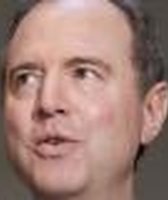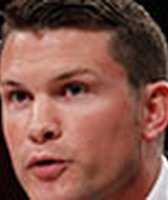Stand up for the facts!
Our only agenda is to publish the truth so you can be an informed participant in democracy.
We need your help.
I would like to contribute

Republican presidential candidate Ted Cruz sat down with CBS late-night host Stephen Colbert on Sept. 21, 2015.
Ted Cruz says slow economic growth under Jimmy Carter, Barack Obama stands apart
Newly installed CBS late-night host Stephen Colbert tangled, politely, with Sen. Ted Cruz, R-Texas, on his Sept. 21 show regarding the legacy of President Ronald Reagan.
Colbert asked Cruz, who’s running for the Republican presidential nomination, whether he could agree with Reagan’s support of "amnesty" for undocumented immigrants and the late president’s willingness to raise some taxes amid budget shortfalls.
Cruz said "of course not" before pivoting to Reagan’s most conservative accomplishments, one being that he "signed the largest tax cut in history" and spurred economic growth.
"When (Ronald) Reagan came in, from 1978 to 1982, economic growth averaged less than 1 percent a year," Cruz said. "There’s only one other four-year period where that’s true. That’s true from 2008 to 2012."
His point was that Reagan rescued the U.S. economy from the ravages it suffered under his Democratic predecessor, President Jimmy Carter, and that the only other equivalent economic distress occurred under Carter’s fellow Democrat, Barack Obama.
Sign up for PolitiFact texts
Colbert responded, "But when conditions changed in the country, he reversed his world’s ‘largest tax cut’ and raised taxes when revenues did not match the expectations. So it’s a matter of compromising."
We wondered if Cruz was correct about the periods of low GDP growth. (In a separate fact-check, we explore Colbert’s rejoinder.)
Excepting the unusual post-World War II period of 1945 through 1949 -- when the nation was demobilizing from an all-encompassing war -- Cruz has put his finger correctly on the two general periods in which the annual average growth of gross domestic product over four-year periods has sunk below 1 percent. They are the late 1970s era of "stagflation" (that is, stagnant growth combined with rapid inflation) and the aftermath of the Great Recession. The full annual data can be found here.
But there were actually three distinct four-year periods during and after the Great Recession that fit Cruz’s criteria, rather than one -- that is, the four-year periods starting with 2006, 2007 and 2008. (With every four-year period beginning after 2009, average annual GDP growth has exceeded 1 percent.)
Here’s the rundown of the four post-World War II periods that fit Cruz’s criteria:
First year
Second year
Third year
Fourth year
Average annual GDP growth
1979
1980
1981
1982
0.2 percent
2006
2007
2008
2009
0.3 percent
2007
2008
2009
2010
0.4 percent
2008
2009
2010
Featured Fact-check
2011
0.4 percent
So Cruz overlooked two additional four-year periods. Also, the implication of his comment -- that Democrats bear the primary responsibility for these periods of poor economic growth -- is not so clear.
For starters, as we’ve discussed previously, economists say it’s hard to determine how much credit or blame a president deserves for successes or shortcomings in the economy at large on their watch. Factors outside their control, from energy-price shocks to technological changes to pure luck, can have a significant impact on the nation’s economic record.
In addition, Cruz’s groupings suggest some contradictory standard-setting.
For the 1979-1982 period, Carter was in office for the first two years and Reagan was in office for the third and fourth years.
But in the next two periods -- 2006-2009 and 2007-2010 -- George W. Bush, a Republican, was president for at least half of the time. In fact, Bush was in charge for the first three years in 2006-2009, and the first two years in 2007-2010.
If Carter, Democrat, is to take blame for the slow growth in the first period, then logically Bush, a Republican, should shoulder the same blame in the next two four-year periods.
By the same token, if Reagan, a Republican, escapes blame in the first example, then so too should Obama in the second and third four-year periods.
And the 2005-2008 period -- which occurred entirely on Bush’s watch -- barely escapes inclusion on this list, with an average annual growth rate of 1.13 percent. (During the 2008-2011 period, Obama was president for the final three of those years.)
Gary Burtless, an economist with the Brookings Institution, said he doesn’t blame either Reagan or Obama for the economic shortcomings early in their tenures that fall under Cruz’s statistical claim. Still, he sees a logical inconsistency in Cruz’s comparison as stated on Colbert’s show.
"It seems doubtful whether poor economic performance early in any president's term can be attributed to the impact of his administration's policies," Burtless said. "If you take office when economic output is plunging, it does not seem legitimate to attribute the economic plunge to the person who just took office."
He added a footnote: Unlike Obama, who unquestionably inherited a recession already under way, the economy actually grew through the first couple of months of Reagan’s first term. GDP grew in the third and fourth quarters of 1980, right before he was elected, and continued to grow during the first quarter of 1981 after he was in office, before a "double-dip" recession hit.
Cruz spokesman Phil Novack told PolitiFact that our analysis misses the point.
"The focus on who exactly held office in each of those individual time periods is not as important as the contrast between the two periods in terms of how quickly the economy was growing before and after those identified time periods, which is the point Cruz was making," Novack said. "His point was obviously referring to policy results, and we know the results of the policies that followed those slow-growth years of below 1 percent growth that Sen. Cruz identified. Reagan's policies brought us a boom, and Obama's policies have been a bust."
For what it’s worth, we also compared Carter and Reagan on their economic records and found them more similar than one might expect.
During Carter’s four years in office, the growth rate averaged 3.23 percent a year. If you take the first four years of Reagan’s presidency, it averaged 3.34 percent. Essentially, each president had two good years and two bad years, which more or less averaged out.
Our ruling
Cruz said that "when (Ronald) Reagan came in, from 1978 to 1982, economic growth averaged less than 1 percent a year. There’s only one other four-year period where that’s true. That’s true from 2008 to 2012."
Cruz missed two other four-year periods that fit the criteria. In addition, his implication -- that Democrats are largely to blame for those conditions -- doesn’t stand up to logical consistency, particularly when he excluded the period beginning in 2006 (which included three years solely under Bush) and 2007 (which included two years solely under Bush).
This goes on top of general uncertainty about how much blame to assign presidents for poor economic conditions. On balance, we rate the claim Mostly False.
Our Sources
Ted Cruz, comments on CBS’ The Late Show with Stephen Colbert, Sept. 21, 2015
U.S. Real GDP Growth Rate by Year, accessed Sept. 24, 2015
Vox.com, "Stephen Colbert gets Ted Cruz to admit he doesn't agree with Reagan on immigration or taxes," Sept. 22, 2015
Email interview with Gary Burtless, senior fellow at the Brookings Institution, Sept. 22, 2015
Email interview with Phil Novack, spokesman for Ted Cruz, Sept. 24, 2015
Browse the Truth-O-Meter
More by Louis Jacobson
Ted Cruz says slow economic growth under Jimmy Carter, Barack Obama stands apart
Support independent fact-checking.
Become a member!
In a world of wild talk and fake news, help us stand up for the facts.
























































